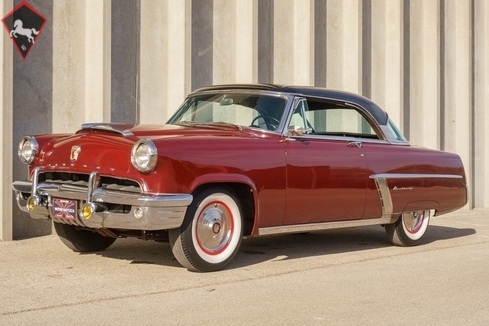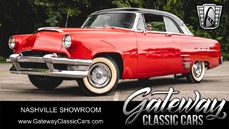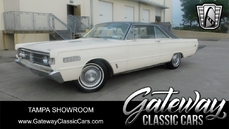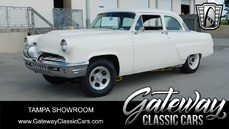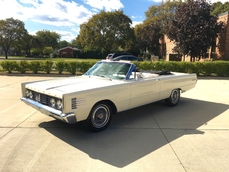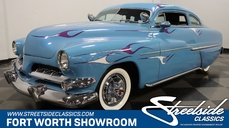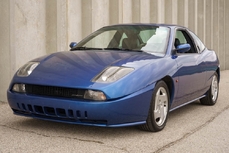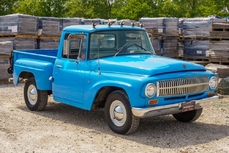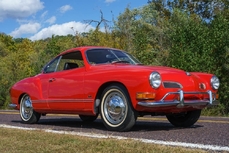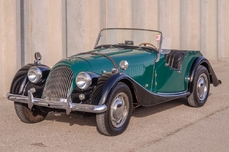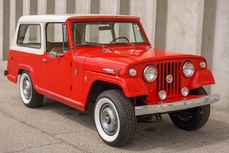Mercury Monterey 255 CID V-8 Custom Sport Coupe 1952
General description :
Reportedly only 19,000 original miles
255 CID V-8 engine (code V8-MA)
Early version of Merc-O-Matic three-speed automatic transmission and 3.73 gearing
Raven Black over Fanfare Maroon exterior (code 42E)
Original Black and Cherry Red vinyl interior (code 88A)
Aircraft-inspired instrumentation
Foglights, Borg electric clock, Merc-O-Therm ventilation system
Documentation includes original owner’s manual, original Merc-O-Therm HVAC guide and original Merc radio guide
1952 Mercury Monterey 255 CID V-8 Custom Sport Coupe is listed for sale on ClassicDigest in Fenton (St. Louis) by MotoExotica for $34900.
Car Facts
Car type : Car Make : Mercury Model : Monterey Model Version : 255 CID V-8 Custom Sport Coupe Engine size : 0.0 Model Year : 1952 Sub type : Coupé Location : Fenton (St. Louis) Vehicle Registration : Undefined
34900 $
People who viewed this Mercury Monterey also viewed similar Mercury listed at ClassicDigest
Other cars listed for sale by this dealer
About Mercury
Mercury, the automotive brand, has a rich history that extends beyond its role in the customization and hot-rodding scene, particularly with the iconic Mercury Eight. Here are some key points to know about Mercury:Formation and Early Years:
Mercury was introduced by the Ford Motor Company in 1938 as a mid-priced brand, positioned between the affordable Ford models and the luxury Lincoln lineup. The brand aimed to fill the gap between these two segments.
Mercury Eight:
The Mercury Eight, launched in 1939, is perhaps the most famous model in the brand's history. It featured a sleek design and a powerful V8 engine. This model became popular for customization and hot-rodding, earning it a significant place in American automotive culture.
Customization Culture:
The Mercury Eight, with its distinctive styling and relatively affordable price, became a favorite among custom car builders. It played a pivotal role in the development of the custom car and hot rod culture, particularly in the post-World War II era.
Lead Sleds and Customization:
The term "lead sled" is often associated with heavily customized cars from the 1940s and 1950s. These cars, including the Mercury Eight, were often modified with lowered suspensions, chopped roofs, and other stylistic changes. Lead sleds were a prominent part of the custom car scene, and the Mercury Eight was a popular choice for such modifications.
Post-War Prosperity:
In the post-World War II period, Mercury, like many other American automakers, experienced a surge in popularity as the economy boomed. The brand contributed to the era's fascination with stylish and powerful automobiles.
Evolution of Models:
Over the years, Mercury continued to produce various models, contributing to Ford's lineup. Some notable models include the Mercury Monterey, Mercury Comet, and Mercury Cougar.
Decline and Discontinuation:
Despite periods of success, Mercury faced challenges in establishing a unique identity separate from Ford. As consumer preferences shifted, the brand struggled, and Ford eventually announced the discontinuation of Mercury in 2010.
Legacy in Popular Culture:
Mercury, especially models like the Mercury Eight, holds a significant place in American popular culture. Its association with the customization and hot-rodding scene, as well as its distinctive designs, has left a lasting impact.
In summary, while the Mercury Eight is celebrated for its role in the customization and hot-rodding subculture, Mercury as a brand played a broader role in automotive history, contributing to mid-priced segments and reflecting the automotive trends of its time.
